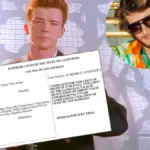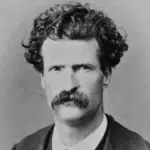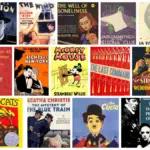One of the joys of living in the DVD/Blu-ray age is that TV fans can easily relive their most joyous television experiences, with series that range from the iconic to the obscure. Megahits like The Simpsons and Seinfeld are obviously readily available, as are cult favorites like Freaks and Geeks and Arrested Development. Even less iconic one-season-wonders are available for home viewing consumption, like Greg the Bunny, Studio 60 on the Sunset Strip, and my personal favorite, Square Pegs, complete with New Wave soundtrack and a pre-Sex and the City Sarah Jessica Parker as nerdy high schooler Patty Greene.
But given the hundreds of shows to choose from, do you ever wonder why some of the most popular series, like The Wonder Years are AWOL on home video?
As with most questions I’m asked (and this can be problematic when my wife wants to know where I’d like to go to dinner), the answer is copyright law.
Many classic TV series never make it to home video release because of restrictions in the music licenses that were obtained when the shows first aired. In order to save money on music rights, producers would often obtain licenses allowing the music featured in the shows to be used for broadcast purposes only. Perhaps not recognizing that fans would someday pay for DVD copies of programs they used to watch for free, producers often failed to secure licenses that would extend to home video or digital distribution.
While the most cautious and least cost-sensitive producers had the foresight to acquire rights tantamount to Justin Bieber’s lifetime supply of free appetizers at Hooters — “all media now known or hereafter devised, throughout the universe, in perpetuity” — more cost-conscious studios who now want to exploit their shows in these new formats need to track down the owners of the music appearing in each episode and negotiate new licenses. But in the case ofThe Wonder Years, much of the music (including Joe Cocker’s Beatles cover in the opening credits) is extremely popular (i.e., prohibitively expensive), which is one of the reasons the complete series has never been available on DVD or digital download.
Sometimes, rather than pay to use the original music, producers will replace the songs appearing on the broadcast version of a show with generic tracks. Case in point is WKRP in Cincinnati, another program in which pop music was an integral part of the show’s appeal. Upon purchasing DVDs of the series a few years back, many WKRP fans were outraged to learn that scenes featuring the original music had been modified or cut out altogether — from Foreigner’s “Hot Blooded” in one scene, to a single line from “Fly Me to the Moon” as played by Loni Anderson’s doorbell in another. A similar fate has befallen more recent series like Beavis and Butthead, in which several scenes of the slacker pair sitting on the couch commenting on MTV videos have been removed altogether because the music was not cleared for home video.
Studios and production companies have reason to be vigilant about ensuring that music that hasn’t been cleared doesn’t show up on their home video releases. Lest you think that no one will notice (or care) about a single line from a song that’s over fifty years old, look no further than the case filed last month against CBS Studios and Paramount Home Entertainment arising out of music used in an episode of the Michael J. Fox hit Family Ties.
Surely you remember that American classic, “We Are the Men of Texaco,” Heywood “Woody” Kling’s theme song for an even older program, Texaco Star Theater. One of television’s very first hits, Texaco Star Theater was hosted by “Mr. Television” Milton Berle from 1948 to 1956, and was reportedly responsible for driving the sales of millions of Americans’ first TV sets. CBS Studios, the producer of Family Ties, got a license from Kling to use the “Texaco” theme in a 1985 flashback episode of the show in which father Steven Keaton remembers his childhood. According to the plaintiff in the lawsuit (a corporation set up by Kling’s heirs), the 1985 license only allowed for the use of Kling’s song for television broadcast, and didn’t extend to home video exploitation — which occurred in 2008, when a Family Ties DVD containing the episode with plaintiff’s song was released by Paramount.
Why did Kling’s heirs wait so long to sue? It’s not entirely clear, but one possibility is that they weren’t aware of the song’s use on the DVD until late last year, when CBS sent a “Television Synchronization License Agreement” to Kling’s son. The license agreement, which CBS asked Kling to sign, provided for a $19,000 license fee in exchange for the right to use the song on the DVD — a perfect example of Hollywood putting into action the theory that it’s easier to ask for forgiveness than permission. Unfortunately, that theory doesn’t work as well when the act of asking for forgiveness alerts the victim to the transgression in the first place…a transgression that could come with a $150,000 price tag, the maximum amount of statutory damages afforded by the Copyright Act.
Situations like the unavailability of The Wonder Years, the butchering of WKRP in Cincinnati, and the lawsuit over Family Ties illustrate one of the great virtues — and great challenges — of copyright law. Copyrights are often described by scholars and law professors as “bundles of rights,” which can be chopped up and meted out in seemingly infinite gradations and combinations. Want to license only Bulgarian Betamax rights to your copyrighted work? That’s your right (if you can find a buyer…good luck with that). This great divisibility helps copyright owners maximize the value of their works. But it also leaves buyers and licensees vulnerable when they turn out not to have all the rights they want or need (even if they don’t learn about the shortfall until years later).
It also leaves lawyers like me to continue trying to convince the rest of the world that clearance can be sexy too. Someday, you people will learn. Until then, I blog.






